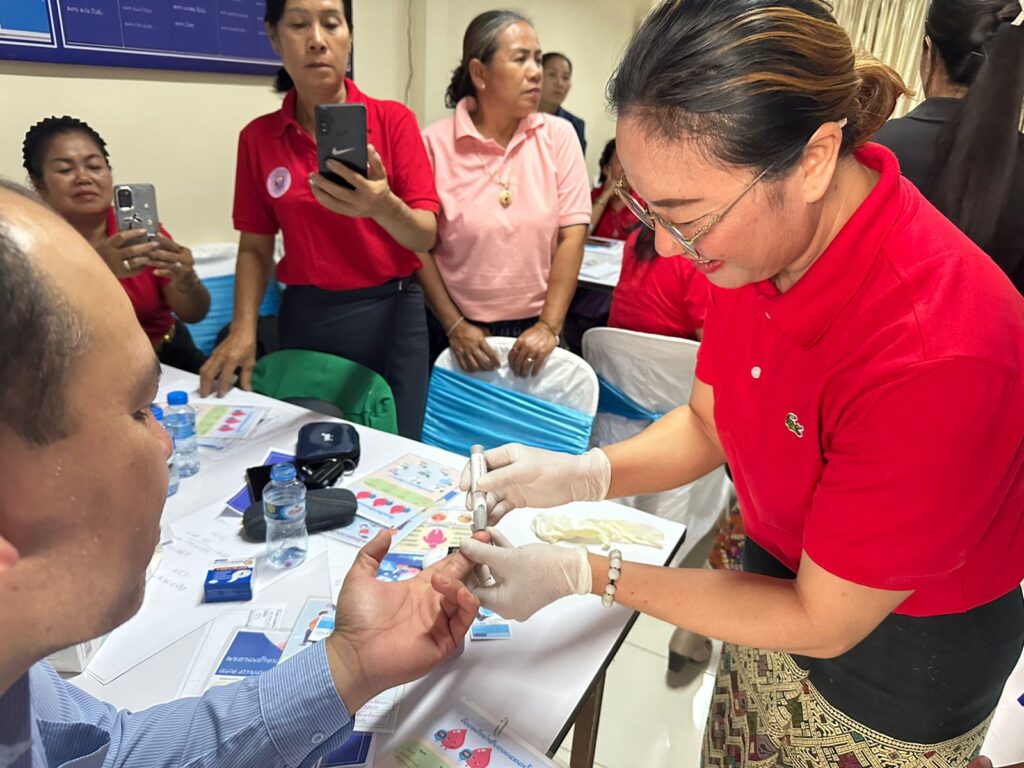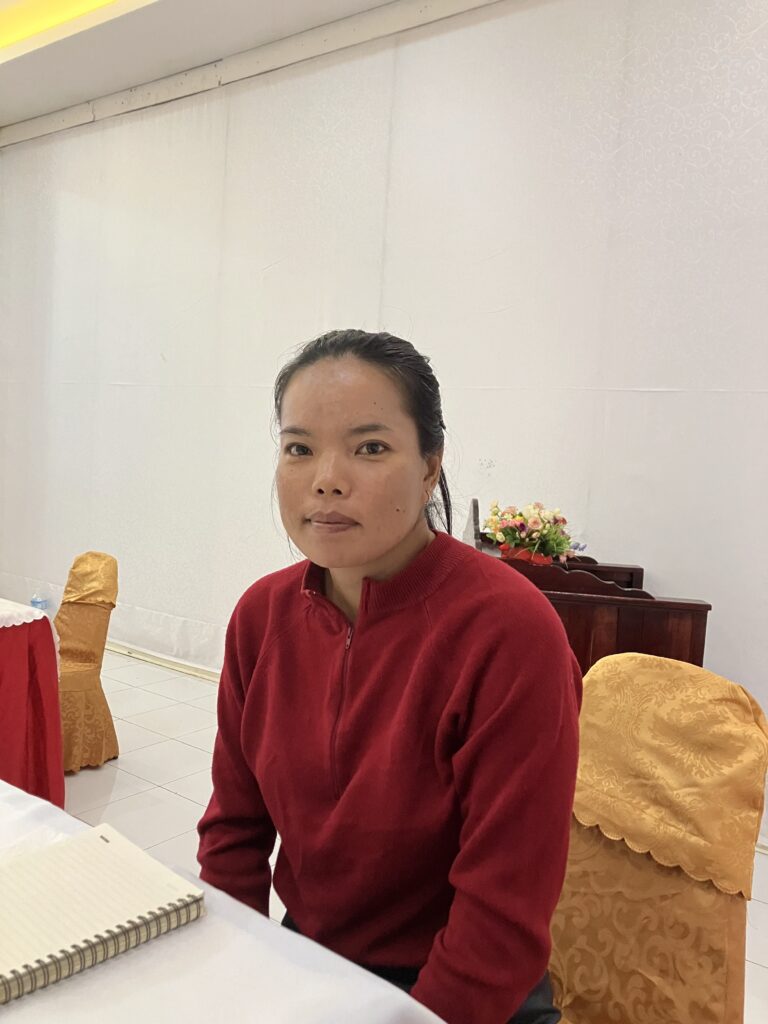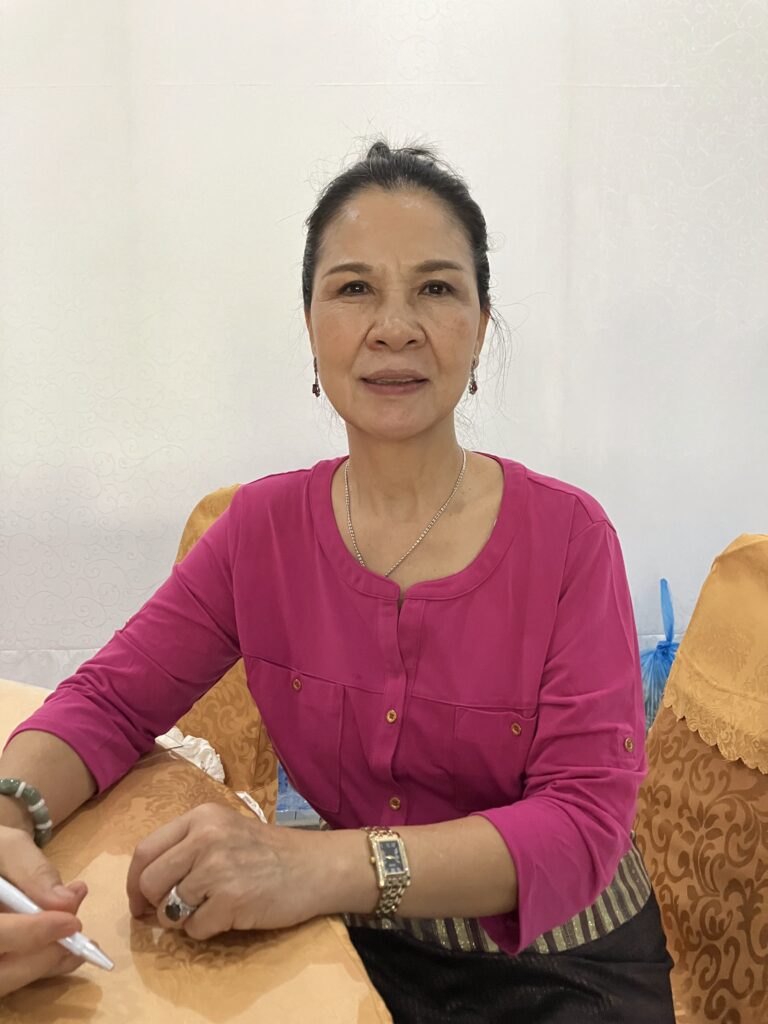
In the Hadsayfong district in Vientiane city, the capital of Lao PDR, 50 village health volunteers gathered for a training session on noncommunicable diseases (NCDs). Over the course of the training, they learned about the key risk factors, symptoms and how to conduct community health screenings for NCDs. The newly trained volunteers will now be able to support health care workers to conduct health screenings and improve the well-being of the people in their communities.
These health volunteers are among the dozens of people to be trained under Vital Strategies’ partnership with the Lao Ministry of Health, aimed to equip front-line health workers and village health volunteers with the skills needed to deliver tailored interventions against NCDs.


NCDs such as cardiovascular disease, stroke, cancer and diabetes are the world’s leading cause of death—responsible for approximately three out of four global deaths. Studies show that an estimated 80% of NCDs are preventable: Governments can implement policies to control tobacco, improve access to healthy foods, make alcohol less accessible and reduce air pollution.
Yet, in countries such as Lao PDR, cases of NCDs are continuing to rise, partly because many people are unaware of what NCDs are and, more importantly, how to prevent them. It is common for people to ignore early symptoms of an NCD and only seek help when their condition has become serious, resulting in a heavy burden on them, their families and the health system.
Drawing from the WHO’s Package of Essential NCD Interventions (WHO PEN) for primary health care, Lao PDR developed a localized version, LAO-PEN, to guide the management, referral and treatment of four major NCDs: diabetes, cardiovascular disease, cancer and chronic respiratory diseases. The project also leverages Lao PDR’s new Law on Primary Health Care, which recognizes the appointment of volunteers at the village level in the design and delivery of community health services.
Powered by Sanofi’s Global Health Unit for sustainable impact, this project has trained 83 front-line health workers and 62 community health volunteers from four districts in the Vientiane province since its inception in June 2024.
The volunteers will help to address an issue that Dr. Chanthone Xaysanavong has encountered in her work in Vientiane: There’s no clear screening, diagnosis and referral process at the front line. Patients may be sent to either the wrong department or hospital, or are referred when no urgent need exists. The central hospital is overwhelmed due to these frequent misreferrals, compounded by a lack of confidence in the front-line health system, Dr. Chanthone said. As a result, people who may have traveled long distances from rural villages to central hospitals face long wait times or, in some cases, are turned away. When patients encounter inefficiencies in the system, they may be discouraged from seeking care until their conditions worsen, she said.

Located in the Southeast Asian region, Lao PDR faces limited resources, underdeveloped public health infrastructure, and inadequacies in health care services at provincial and district levels. Despite these obstacles, the country’s health system remains committed and ready to apply new strategies such as these to improve the well-being of its citizens.